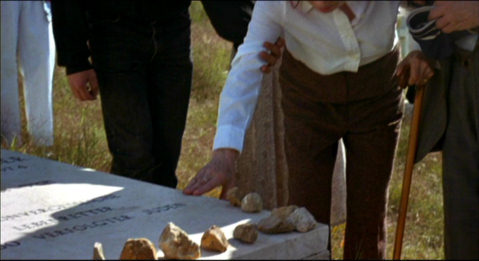|
Since Steven Spielberg is now an unassailable cinema God, it may be difficult for many of you younger readers to realize that it was not always that way. In fact, that is a comparatively new phenomenon. If you could travel back in time to 1992, you would discover that he was then considered a talented but trivial man, a shamelessly commercial mainstream director whose goal in life was to achieve massive box office results with movies that were sentimental and shallow, albeit technically brilliant. That was not necessarily an accurate perception of him, but it was a widely held belief. It really had more to do with the movie industry than with Spielberg. Hollywood has gone through many cycles in estimating its self-worth. The people of Hollywood, from the earliest days until now, have always been the best entertainers in the world, but they have not always been consistently guilt-free about that fact. In the 1950s, Hollywood was truly proud of being an entertainment center, and routinely awarded the Best Picture statuettes to entertainment films with razzamatazz, like Gigi, Around the World in 80 Days, and even The Greatest Show on Earth. That didn't last. The cultural revolution of the late 60s and 70s hung some existential guilt on Hollywood. That reached its apex in the 80s, and lingers to this day, perhaps finally expunged by Lord of the Rings. During the late 70s and 80s, even though they continued to make great entertainment films, and to make their fortunes from such films, Hollywood's filmmakers often applauded mediocre message films at award time. In one eleven year span, the Best Picture Oscars went to Out of Africa, Ordinary People, Chariots of Fire, Driving Miss Daisy, Gandhi, and Dances with Wolves. It was during this period that Spielberg made his best entertainment pictures, which always seemed to lose to second-rate films with noble intentions. Spielberg made Jaws (#79 of all time at IMDb), E.T. (#241), Last Crusade (#142), Raiders (#16) and Close Encounters (just barely out of the top 250) within a fifteen year span. He became rich, but received not one Oscar for best picture or best director, although the actual winners were often forgettable films, and Spielberg's movies became the universal defining elements of American popular culture. Hollywood trivialized him completely by awarding him the Irving Thalberg award when he was only 40. He must have felt like crying out, like a Monty Python character, "I'm not quite dead yet." Well, he wasn't even close to being dead. With Schindler's List, Amistad, and Saving Private Ryan, he simply kicked everybody's asses. He continued to use his own highly refined skills at great storytelling, and his knack for connecting emotionally with audiences, but he also took on the most important themes of the past 200 years: the sacrifices of WW2, the holocaust, and slavery. The results were a way of subtly thumbing his nose at the independents and intellectuals and "message" filmmakers by saying, "Looky here. You can make 'important' movies, but you don't have to sacrifice a great story, or human warmth, to do so." Within a decade, Spielberg had been elevated in status to the Shakespeare of cinema. And you know what? The sumbitch deserved it. Of course he had deserved it all along, but the point is that his recognition finally matched his production. He is a master. Compare Schindler's List to last year's much-praised 21 Grams. The latter just consisted of an unparalleled wallow in misery, but Spielberg, who could easily have wallowed in misery in a holocaust film, chose instead to find dozens of real human moments reflecting the delicate shades of light and darkness inherent in the human condition. He dug in and found human truth instead of delivering lectures. For example:
|
|
|
I think the most beautiful moment in the film is an
impromptu one. After the story has ended, there is an epilogue which
takes place in the present day. Each of the surviving members of the
Schindlerjuden walks hand in hand with the actor who plays him in
the movie, and both people place stones on Oskar Schindler's grave
in Jerusalem. It all seemed too drawn-out and saccharine, until one lady, stooped with age, placed her stone
as she had been instructed to do, and then hesitated for an instant,
looked at the grave, and softly rubbed the side of the stone with a
couple of fingers, even though she had to bend over in obvious
discomfort to do so (right). It was only a tiny unrehearsed moment in the scope of a monumental epic film, and yet it was the one which made my eyes tear over. |
 |
The film has its bad moments as well. Two come to
mind:
You may be interested to know that there are some historical inaccuracies in the film. In my opinion, Spielberg got to the real truth of the situation, beyond and beneath the facts, but for the sake of accuracy:
|
|
